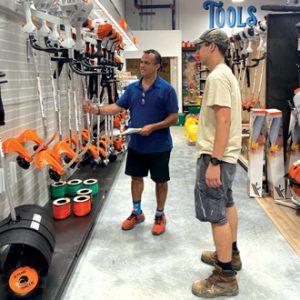 From a young age, most of us are taught to be polite, work together with others and use our words to solve problems. These attributes, called soft skills, are important for our everyday human experience, and they’re also essential in any workplace setting.
From a young age, most of us are taught to be polite, work together with others and use our words to solve problems. These attributes, called soft skills, are important for our everyday human experience, and they’re also essential in any workplace setting.
However, several recent studies have found that employers believe some of their employees lack these critical skills, and it’s having a negative impact on their ability to do business well.
Wiley Education Services and Future Workplace surveyed 600 human resources leaders in 2019 and found that 64 percent of the respondents believe there is a soft skills gap in their company and 42 percent believe that gap is making their companies less efficient and costing money.
On the following pages, learn from two retailers who have made soft skills a key part of their company cultures and discover their best practices for improving soft skills in your own business.
 Defining Soft Skills
Defining Soft Skills
When reading applications or interviewing, you can clearly see if an applicant has hard skills—experience in a trade, proficiency in software programs or bilingualism—but soft skills are harder to pick out.
According to job posting platform Indeed, soft skills are “abilities that relate to how you work and interact with people.” Some common soft skills in the workplace include written and verbal communication, teamwork, leadership, critical thinking and empathy. Other less common, but still important, soft skills are project management, business acumen and handling complexity. So, what do these skills look like in a retail setting?
Written and verbal communication are straightforward; they are how your employees interact and communicate with customers and each other. Teamwork and leadership are also easy to spot among your staff. Some employees are naturally more adept at showing initiative with projects, leading a team and working well with everyone.
When a retail employee can design a creative merchandising display, handle difficult customers or think outside the box when work issues come up, that’s an example of critical thinking in action, says Susan Zhu, senior researcher with the Society for Human Resource Management (SHRM).
Retail employees are often given explicit directions about what to do in a situation, but if the situation is not straightforward, the employee may have difficulty taking charge and solving problems. Those employees who can handle outside-the-box situations are showing they can handle complexity.
“It’s fine when things are going well, but when there are unplanned situations or emergencies, an employee who is unable to deal with complexity and ambiguity will not know how to act in those situations effectively,” Zhu says.
Maybe you haven’t been formally calling these attributes soft skills, but you do know these qualities are important in your employees. And if you’ve found a lack of these skills in new job candidates or your own employees, you’re not alone.
 Examining the Gap
Examining the Gap
In the 2019 Global Skills Shortage Report published by SHRM, 75 percent of employers from around the U.S. who were surveyed believe there is a shortage of hard and soft skills in job candidates. The survey asked respondents to name what specific soft skills they feel are missing in employees, and SHRM organized those skills into three categories: problem-solving, critical thinking, innovation and creativity; ability to deal with complexity and ambiguity; and communication.
The gap may not always be an employee’s fault, however. Zhu recommends considering the work context when looking at any potential soft skills gap.
“Some workplaces may say, ‘My new hires are not solving problems or coming up with creative solutions.’ But it’s possible that those workplaces didn’t create a culture or environment for people to feel comfortable voicing new ideas,” Zhu says. “I think that’s an important issue to consider as we talk about the skills gap in general. It is up to companies to provide the necessary training and development for their employees.”
Fortunately, there are steps business owners can take to improve soft skills among their employees and create a culture that encourages learning and using these skills.
Evaluating Job Candidates
As a coach for his kids’ sports teams, dedicated community volunteer and small business owner, Jon Phillips understands firsthand the importance of soft skills. He works with local police departments to build relationships with urban teens and teach them basic skills, including soft skills, to find a job. He encourages everyone—from the kids he coaches to his employees—to develop and use their soft skills.
Phillips owns two Phillips Hardware stores outside Albany, New York. Soft skills are imperative to him as a business owner, because customer service is at the core of his company’s brand and culture; the Phillips Hardware company motto is “Phillips Hardware, where it’s all about service.”
During the hiring process, Phillips looks for certain experiences on the job application and during the interview that can be strong indicators a candidate has soft skills, such as a military background or volunteer work.
He’s immediately drawn to job candidates who grew up or worked on a farm or are involved in sports and extracurriculars. Phillips also looks at other life experiences.
“Maybe they didn’t play sports or were involved in a lot of extra activities, but helped raise three of their siblings,” Phillips says. “Those are the kind of experiences that tell me this person has the soft skills I’m looking for in an employee like teamwork, problem-solving and communication.”
Gold Beach Lumber, which has seven locations in Oregon and over 140 full-time employees, also understands the importance of soft skills and includes training in developing soft skills in its new employee onboarding and training program. Dean Kruschke, vice president of finance and administration, developed the program with owner Ryan Ringer and the company’s management team.
“We wanted to reduce employee turnover and give our employees an opportunity to become productive team members in a short amount of time,” Kruschke says. “Our new interview and onboarding process is a longer process now, which is harder for us, but it allows us to recognize soft skills in job candidates and make sure we’re putting the right people in the right positions.”
When looking for soft skills in job candidates, younger generations can get a bad rap. Kruschke believes that many younger candidates are actually better at some soft skills, including compassion and creating a healthy work-life balance.
“We’ve found that in addition to a good salary and 401K, younger employees most want time off to pursue outside interests, to feel pride in their employer and to work for a company that fits their values,” Kruschke says. “It’s important for us to develop soft skills in our company so that younger generations can see what we offer; working with us is not just about the salary.”
 Developing Soft Skills
Developing Soft Skills
Once Gold Beach has found the right candidate, the company’s 90-day onboarding and training program plans out a new hire’s schedule by the hour for their first 90 days and includes a focus on developing certain soft skills. The first week includes training on how to be a good team member and work in a diverse environment with different groups of people.
“Lumberyards have a reputation of being rough and tumble and often lacking in any gender or cultural diversity,” Kruschke says. “Diversity is important to us and is a key to our success, so we want our employees to work and thrive in a diverse environment and respect others who might be different from them.”
Kruschke also uses a soft skills training resource from a well-known fast food chain that teaches employees about showing compassion to customers and fellow workers.
“Compassion is the soft skill we emphasize the most because we want our people to care about other people,” Kruschke says.
The program has been successful, not only in retaining employees but also improving employees’ soft skills.
“After employees complete the program, we find they’re better team members, interact well with customers and fellow staff and have the hard and soft skills to help our customers,” Kruschke says. “They are also much happier because they know how to do their job and do it well.”
Phillips says he has created a set of best practices at Phillips Hardware to guide employees, and he also trains his managers how to teach soft skills to employees. He encourages managers to take the time to correct slip-ups when they happen.
“When a manager hears an employee call someone ‘dude’ instead of ‘sir,’ I want them to correct that misstep then and there, giving the employee guidance and advice on a better way to address a customer or handle a situation,” Phillips says.
When an employee receives a question they can’t answer, Phillips encourages them to find another employee who can help, but then stay and learn from them, seeing how that more experienced employee handles the question or situation.
“It’s about being willing to learn,” Phillips says. “If you don’t know the answer to a question and have to get another associate, rather than just walking away, stay and learn from your co-worker.”
Phillips also emphasizes vulnerability with his employees. During training, Phillips and his managers let their employees know that failure is an option, as long as they learn from their mistakes.
“We want them to be vulnerable so when they do make a mistake, they can own up to it and learn from it,” Phillips says. “If you make a mistake, don’t make excuses. Be vulnerable and willing to admit you messed up but that you will try to do better next time.”
At Gold Beach, soft skills development starts at the top as well. The management team teaches and leads by example, taking on a servant-leadership mentality.
“We’re trying to make people’s lives better by leading by example, finding teaching experiences and lifting people up rather than putting someone under your thumb,” Kruschke says. “I view my role in the company as one of leadership, teaching and trying to help people to succeed.”
 Hardware Retailing The Industry's Source for Insights and Information
Hardware Retailing The Industry's Source for Insights and Information








